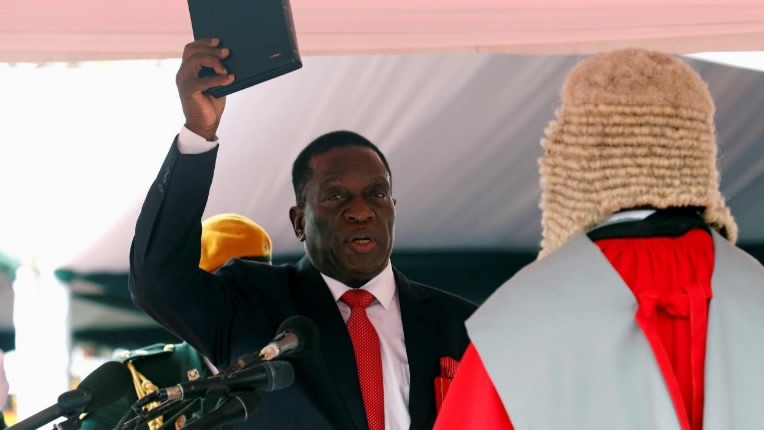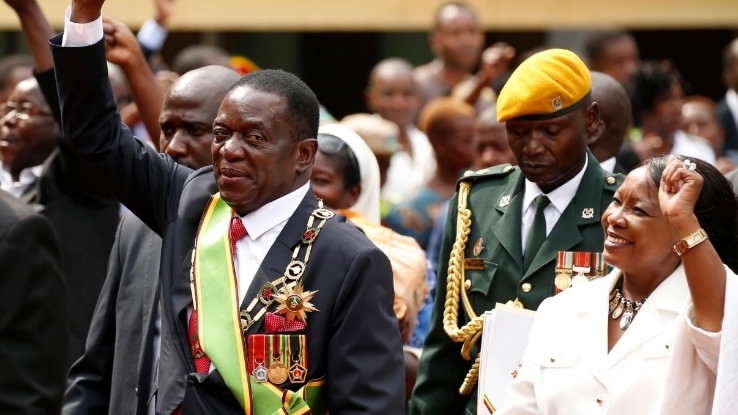
Politics
08:57, 29-Nov-2017
Zimbabwe's Mnangagwa offers three-month amnesty for return of externalized funds
CGTN

Zimbabwe's new president Emmerson Mnangagwa on Tuesday gave a three-month amnesty for individuals and companies to bring back funds they externalized or face arrest.
Mnangagwa said the military intervention which led to the resignation of former president Robert Mugabe last week had helped to uncover cases where huge sums of money and other assets were illegally externalized by individuals and companies.
He said such malpractices constitute a serious economic crime against the people of Zimbabwe.
"As a first step towards the recovery of the illegally externalized funds and assets, the Government of Zimbabwe is gazetting a three-month moratorium within which those involved in the malpractice can bring back the funds and assets, with no question being asked or charges preferred against them," the president said in a statement.

Zimbabwe's new president Emmerson Mnangagwa and his wife Auxillia wave to their supporters as they leave after the swearing in ceremony in Harare, Zimbabwe, November 24, 2017. /Reuters Photo
Zimbabwe's new president Emmerson Mnangagwa and his wife Auxillia wave to their supporters as they leave after the swearing in ceremony in Harare, Zimbabwe, November 24, 2017. /Reuters Photo
The amnesty runs from December 1 to end of February 2018.
Mnangagwa said affected persons who wish to comply with the directive should liaise with the Reserve Bank of Zimbabwe for necessary facilitation and accounting.
Upon the expiry of the three-month window, Mnangagwa said the government would proceed to effect arrests of all those who would not have complied with the directive.
Zimbabwe is currently facing a cash crunch as the main transacting currency, the US dollar and the surrogate bond notes remain in short supply.
Monetary authorities blame the cash shortages to low imports and externalization.
Source(s): Xinhua News Agency

SITEMAP
Copyright © 2018 CGTN. Beijing ICP prepared NO.16065310-3
Copyright © 2018 CGTN. Beijing ICP prepared NO.16065310-3